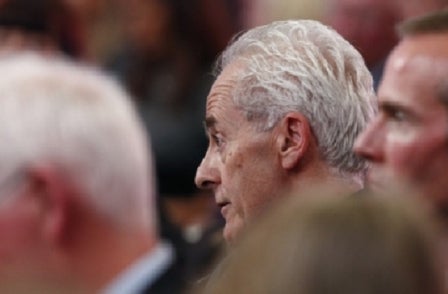
Nick Davies, the journalist who broke the phone-hacking scandal, has described the decision to close down the News of the World as “appalling”.
And The Guardian reporter has distanced his story about the hacking of murdered schoolgirl Milly Dowler’s phone from the closure.
On Monday 4 July 2011, The Guardian broke the news that Dowler’s phone had been hacked. On Thursday 7 July, it was announced that the newspaper would be closing and it was published for the last time that Sunday, 10 July.
The story, co-written by Amelia Hill, claimed that NoW had deleted messages from the girl’s phone giving her family “false hope” that she was alive.
In December 2011 The Guardian retracted the message deletion claim, and in May 2012 the Met Police told the Leveson Inquiry that there was no evidence that NoW journalists had deleted the messages.
But Davies says the truth behind that story "remains clouded in doubt” – and said that News Corp’s decision to close the News of the World was to aid its bid for BSkyB rather than because of this story.
Davies was speaking to Press Gazette after the publication of his latest book, on the scandal, Hack Attack. The full interview with Press Gazette will be published early next week.
On the Dowler story, he said: "The bottom line is that evidence that emerged four months after we broke that story that nobody was aware of, that the police found in the dusty archives – that evidence certainly casts significant doubt on that one element of the story.
“That then gets converted by the bad guys into, first of all, certainty that that element is wrong – which is untrue.
“Second, the idea that we knew it was wrong, made it up and lied – which is absolutely wrong.
“Thirdly, that the whole story was wrong…
“Fourthly, that that was the most important angle of the story. And in a Guardian article I wrote recently I did a check in a news database: how many newspapers reported the Milly Dowler hacking between us disclosing it and the closure of the News of the World being announced? And then: how many actually reported the deletion, or the ‘false hope’ moment? And it was less than a quarter…
“If you read the story – you’re a journalist, where do you put your most important fact? In the intro. Where is it in the story? The seventh paragraph.
“So you can see what’s happening is that that potential error in the story gave the bad guys a stick to beat us with.”
Davies added: “All journalists will make honest mistakes… it’s alright to make honest mistakes. From the most junior journalist to the most senior editor, people will sometimes make honest mistakes. And that’s okay. The key word is honest. As long as you are trying to tell the truth, you’re okay.”
Asked if he was pleased the News of the World had been closed down, Davies said: “Absolutely not.
“I thought it was an appalling and selfish decision by the Murdochs. At the time I just couldn’t understand why they’d done it. It was so unnecessary.”
He dismissed suggestions that the number of companies pulling advertising from the Sunday title could have been significant.
“What’s now clear, and I didn’t understand this at the time, the reason they closed the paper was to try and save the bid for BSkyB. And there was an internal email that was disclosed at the [hacking] trial, which is absolutely explicit on the point that they had been planning – or talking about – closing the News of the World for months before they did it.
“So they closed it in mid-July 2011, and the discussion about whether to close it, replace it with The Sun on Sunday and all the rest of it, that had been going on since April. Because the hacking scandal was getting bigger just as the BSkyB bid was approaching the green light moment.
“And by June, that’s when the internal email is written… [News International director of corporate affairs] Simon Greenberg to Rebekah [Brooks, News International chief executive and former News of the World editor] saying: ‘We must close this paper now.’ That’s a month before the Dowler story, you see.
“And as the two things are coming together the Dowler story happened to break in the week when Jeremy Hunt was about to give the green light to BSkyB. So it’s absolute freak-out time: ‘Quickly, quickly – close the paper. Try and buy us some political time so that Hunt will let the deal go through.’ That’s what it’s about.”
Email pged@pressgazette.co.uk to point out mistakes, provide story tips or send in a letter for publication on our "Letters Page" blog
